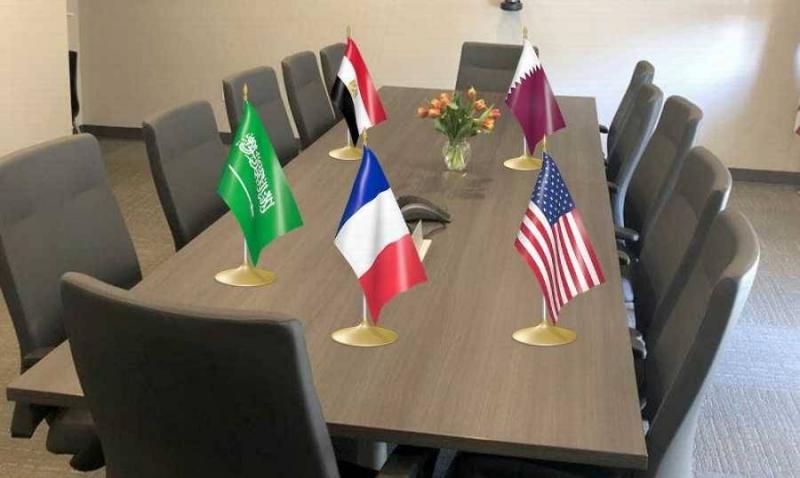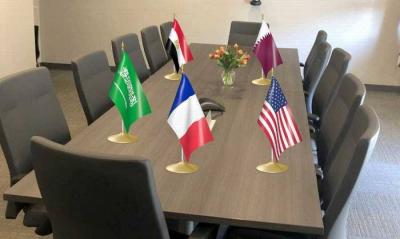Informed sources have indicated to "Al-Liwaa" that the Kingdom of Saudi Arabia will initiate the reactivation of the Quintet concerning the Lebanese presidential file, after a period of stagnation that intertwined the repercussions of the Israeli war on Gaza with the opportunities presented by the Christmas and New Year’s holidays, as well as the distraction of Arab and international decision-making capitals with urgent regional issues.
It is expected that the Saudi Ambassador to Lebanon, Walid Bukhari, will play an active role in this regard upon his return from abroad, alongside the arrival of the new American ambassador to Beirut, Lisa Johnson, who will hold her first meeting with Bukhari this week. The initial phase of reactivating the Quintet's activity will focus on ambassadors in Lebanon, where a meeting is expected to take place with French diplomat Jean-Yves Le Drian, during which he will present the results of his four visits to Beirut, the outcomes of his meetings with official references and political figures, and outline the general framework for the upcoming phase.
The informed sources have confirmed that there is an agreement among the Quintet parties to refrain from interfering in presidential nominations, avoiding preferences for or naming any specific candidate, or placing a veto on anyone. Instead, they will focus on affirming the qualifications that the prospective president must possess, which were previously outlined in the tripartite Saudi-American-French statement issued in New York during the last 2022 United Nations session and adopted by the Quintet in subsequent meetings in Paris and Doha.
Among the key qualifications is that the candidate should have an economic vision to emerge from the current crisis, possess a good reputation, not be involved in corruption, maintain neutrality with respect to various political parties, and not lead their arrival at Baabda to constitute an victory for one team and a defeat for another. Additionally, the candidate must be capable of cooperating with the government and the parliament to expedite reform steps and navigate the way out of the cycle of crises.
These circles believe that international and regional understandings represent an opportunity for the Lebanese to capitalize on to facilitate the presidential entitlement, away from the challenges and disputes that prevailed in previous stages. This requires everyone to abandon policies of stubbornness and grievances, descend from the tree of selfish and factional demands, return to realism, prioritize the country’s interests and the requirements for rescue over all other considerations, and embark on a broad consultation process that paves the way for national consensus to achieve the presidential elections.




